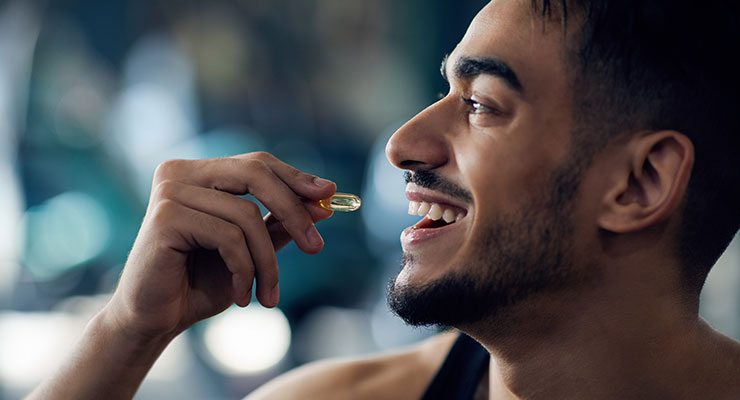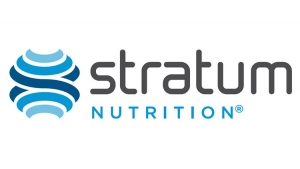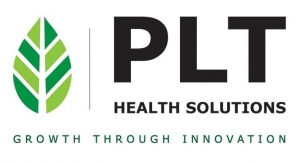By Mike Montemarano, Associate Editor05.03.22
Compared to women, men don’t undergo drastic changes in their nutritional needs throughout life’s stages. Still, when it comes to personalizing products for men, there are condition-specific, goal-specific, and age-related considerations. There’s also nuance to factor for in terms of motivating men to incorporate dietary supplements into their daily health and wellness regimens.
Distinctions between sexes have been a main focal point in industry segmentation and “personalized nutrition” products. However, quality, science-based formulations have become a starting point in order to appeal to consumers who do their homework before buying products.
Men want simplicity and efficacy in their dietary supplements. They value clearly-explained research that backs what supplements they take for an intended purpose, according to Larry Kolb, president of TSI Group.
“Research-backed ingredients that are delivered in a convenient format are what is important when it comes to looking at the men’s health category,” Kolb said. “This growing category sees success with products that are focused on improving the quality of life rather than targeting very specific problems. Ever since the pandemic started, generally speaking, men have started paying more attention to what they put in their bodies. There is a new understanding of the importance of maintaining overall good health and immunity.”
However, there will always remain a desire for products that demonstrate benefit for specific health conditions, said Charlie Ross, senior vice president, Americas, human health nutrition at Aker BioMarine.
“We are seeing that bold messaging as well as new and intriguing product concepts are taking center stage in the industry. Solid value propositions and tangible benefits will continue to help brands differentiate themselves from the rest,” said Ross, “and at Aker BioMarine/Superba Krill, we are behind all of it. We also know that consumers, and customers alike, are interested in premier ingredients that are unmatched when it comes to quality. In addition to condition-specific SKUs and tangible benefits, sustainability is a major purchase driver and we are seeing this as a growing need for all brands across the board. We are seeing more and more companies placing a major emphasis on the environmental aspect of their value propositions.”
Overall, men today are more inquisitive about the contents of their supplements compared to years ago, according to Annie Eng, CEO of HP Ingredients. “Formulation-wise, a top priority, we believe, is the use of ingredients that are confirmed safe and effective. This has remained the top priority and we see it continuing. The concept of clean label is gaining appeal because men who commit to healthy living will choose supplements that have no chemical additives or GMOs, compared to less expensive counterparts. But there are nuances, too, that didn’t exist for healthy living men 20 years ago.”
Education about products and ingredients is a top priority in the men’s health market, Kolb said, especially in an ever-more-online era where it’s common for consumers to self-diagnose.
Online consumers are always a few clicks away from clinical trials on any particular ingredient. “Consumers are looking for the evidence,” said Sebastien Bornet, vice president of global sales and marketing at Horphag Research. “They have a much deeper understanding of how clinical research works compared to 20 or 30 years ago. They also want to do their own personal research and find ingredients themselves that are both natural and evidence-based. Fortunately for us, Pycnogenol has an over 40-year history of research, and more than 160 clinical trials on various applications including those relevant to men’s health.”
The lion’s share of new consumers in the dietary supplements marketplace have begun purchasing products online, Bornet added; all the more reason to keep in mind that consumers are looking to self-educate. “This means an advantage if you’re talking about a research-based ingredient like Pycnogenol. There’s a lot to learn about what’s behind the label. This applies to adulteration as well. There’s an awareness among consumers of how important a clean label is, and the personal due diligence to make sure they’re buying what they really need.”
Cardiovascular health has become part-and-parcel to the growing movement in nutrition that emphasizes healthy aging, and being proactive about health conditions. With men twice as likely to have a heart attack as women, and a steady rise in death and disability from cardiovascular disease across the globe over the past several decades, the ticker is top-of-mind, and basic components of the diet are the answer for many.
“Krill oil can be considered a baseline nutrient supplement intended for overall health and wellbeing, but with its widespread health benefits, it can also be looked at for condition-specific roles. And the EPA and DHA found in krill oil can help play a role in delivering heart health benefits from a preventative standpoint,” Ross said. He noted a study recently published in JAMA which found that krill oil supplementation can reduce triglycerides without increasing LDL levels.
Where the nutrition industry can help men be truly proactive in the heart health department, and preventive measures in general, is through supporting compliance, Eng said. “This is where inventive marketing comes into play. It should be educational as well as motivating; conversational, not dictatorial; encouraging and forthcoming, not hands-off and ‘you’re on your own from here.’ In other words, we believe that it isn’t just the creation of a masterful supplement product, it is the creation and sustaining of a positive, personal ongoing relationship.”

Additionally, the origin story of an ingredient can make any given product more appealing, Fink said. “Today’s consumer wants to be able to research and know more about the ingredients in their food, beverage, and supplement products. Origin stories are incredibly important. Consumers do research on an ingredient and its background. They want to know where the ingredient is coming from, how it’s made, what the science says, and whether it is sustainable and socially responsible. You can’t offer this type of information from non-branded ingredients. These branded ingredients can help build trust and overall brand loyalty.”
It just makes sense to “first ensure that all vitamins and minerals are in optimal doses, and then try not to be everything but the kitchen sink,” Eng said, suggesting that finished product companies should think about aiming narrow and hyper-focusing their multi-ingredient formulations.
Targeting various areas of stamina, for example, could lead formulators to consider what ingredients might benefit a man’s endurance physically, mentally, or even sexually. “LJ100 Tongkat ali has been shown to support sexual stamina as well as athletic endurance. Perhaps it can be combined with maca, epimedium, or yohimbe for sexual stamina; with L-carnitine and caffeine for athletic endurance; or with kesum, Andrographis, or DHA for mental stamina.”
“Performance nutrition is important for men at all life stages and with the popularity of endurance sports on the rise, athletes are pushing their bodies to the limits,” Ross said. “The same can be said for novice athletes and weekend warriors. It’s imperative that supplements are a part of the plan, and important for all, not just top performing athletes.”
For these weekend warriors, the intervals of time spent sedentary can be a major enemy, Kolb said. “Often, men find themselves trying to make up for their sedentary lifestyle on the weekends and push themselves beyond the healthy levels, possibly creating unwanted damage. The importance of a healthy musculoskeletal system is apparent not only for the ‘damage control’ but as a prevention and overall part of a healthy body, regardless of age,” Kolb said.
“The truth is that the discussions on bone health and joint health really are not completed without adding muscle health to the mix,” he continued. “The need to have healthy bones and joints is well-established and understood by the market and consumers and total musculoskeletal health is clearly the next big health category. We at TSI see the need for healthy muscles to be addressed in the men’s health category more sustainably and proactively. Instead of focusing on muscle gains exclusively for performance, shifting the focus to the long-term benefits of building lean and functional muscle mass to ensure higher quality of life and healthier aging is where we believe consumer mindset is shifting. Our branded and patented ingredient MyHMB is the most effective nutritional solution to increase, preserve, and support healthy muscle function.”
HMB (Beta-hydroxy beta-methylbutyrate) is a metabolite of leucine, a branched chain amino acid, and is studied for its role in increasing muscle protein synthesis and decreasing protein breakdown, Kolb said.
For this reason, HMB fits a key challenge that men of all ages should think about: the progressive loss of muscle mass that comes with age. The rate at which muscle mass can diminish begins at around the age of 30, according to Kolb, with muscle loss averaging about 0.8% per year during one’s 40s, accelerating to an average of 1.5% per year by one’s 70s, or around 15% per decade.
“This translates to a loss of strength, lower energy, and slower recovery after physical training or injury,” Kolb said. “It can mean more frequent injuries and even loss of physical ability and independence. At every stage of life and every level of activity, poor muscle health slows us down. Bottom line: it is vital to do all we can with nutrition and exercise to keep our healthy muscle mass and strength as we age.”
Performance nutrition companies are investing in research and development of products that seek to draw younger men into the mobility marketplace, according to Fink.
“Dynagenix is a low-dose Boswellia-based joint and muscle health ingredient. A 60 mg/day dose of Dynagenix was the subject of a recent (not as yet published) clinical trial examining Delayed Onset Muscle Soreness (DOMS) in young men. The study demonstrated Dynagenix’s effectiveness, not only for the joint discomfort we expect from Boswellia but also for muscle recovery post-exercise, assessed by reduced muscle soreness and recovery of strength.”
Secondary endpoints for the clinical trial included strength recovery, reduced knee soreness, overall stiffness, and “perceived exertion” in subsequent physical activity, Fink continued. “The study also assessed biomarkers for inflammation, muscle damage, and connective tissue damage. Most joint health studies to date have been conducted on subjects with osteoarthritis. The Dynagenix study extends the understanding of Boswellia-based ingredients to healthy, younger subjects. It also demonstrates the efficacy of a Boswellia-based ingredient in muscles and in a sports environment for the first time.”
This Boswellia serrata extract overcomes key application challenges by having a pleasant taste profile, so that, for the first time, the herb can be incorporated into trendier sports nutrition delivery applications, including chews, gummies, stick packs, shots, and beverages, overcoming a key challenge for botanicals in these formats, Fink said.
The vitality that men have been seeking on a physical level may now be translating into a growing desire for better cognitive performance, which would explain dramatic growth in brain health ingredients use, according to Fink.
“It may or may not be related to the pandemic, but across the industry, ingredients that promote focus, reduce stress, and improve mood are finding their way into formulations. Our Zembrin Sceletium tortuosum ingredient saw a dramatic increase in sales, particularly in active/sports products but also in weight management and other formulation types,” Fink said.

Experts in the nutritional industry feel optimistic that the well-known plant-based compounds, peptides, and antioxidants shown to benefit hair, skin, and nails have a clear place in the personal care routines of men who care about their appearance.
“Men who are looking for skin care products typically want healthy skin, and want a product that goes beyond purely looks,” Bornet said. “As is usually the case, they want a product which is natural, evidence-based, and efficient. Another advantage is a skin health ingredient with other positionings.”
While men aren’t looking for a capsule that promises solutions to every need, they are looking to limit the amount of products they take daily, and ingredients like “Pycnogenol, for example, can tackle skin care and has been studied for other benefits such as joint health, sports nutrition, and cardiovascular health; and so this can create some very interesting product positioning opportunities,” Bornet said.
The beauty-from-within category has been on Aker’s radar for years, according to Ross. “We conducted a series of skin studies with krill oil that show improved skin elasticity and hydration. As a natural phospholipid complex of marine omega-3 EPA and DHA, choline, and astaxanthin, krill oil supplements can improve skin health. In fact, these tiny red capsules help support healthy levels of hydration and elasticity in the skin, and they come with anti-aging properties.”
However, some of the more niche ingredients may not yet be primed to debut in ingestible formulations for men. “Our beauty-from-within products are finding their way mostly into products for women. I would wager that most of the clinical science done in this area has been done with women,” Fink said.
While it could be misconstrued that there is a direct correlation between age-related testosterone decline and deteriorating general health, research is providing evidence contrary to this narrative. For instance, the Healthy Man Study, which recruited 325 men over the age of 40, concluded that those who self-reported that they were asymptomatic and in very good or excellent health displayed no age-related decreases in testosterone. This suggested to the team of Australian researchers that a decline in testosterone levels may more often be a result, and not the cause, of age-related comorbidities such as obesity, metabolic syndrome, and more; absent an actual hormone deficiency state, other symptomatic disorders related to nutrition should be addressed.
Nonetheless, for formulators, increases in free testosterone levels may come as a welcome effect in conjunction with other benefits, especially in muscle health and sports nutrition products for men with lower-than-average testosterone levels.
“Our work in the testosterone area mostly deals with the sports/active nutrition market,” Fink said. “Our RipFactor Muscle Accelerator is finding its way into testosterone-enhancing formulations. Results from two clinical trials showed increases in free testosterone levels and an improvement in the testosterone to cortisol (T:C) ratio, the latter of which was more than 8.5-times greater than the placebo group. This hormonal balance is supportive of protein synthesis.”
“The primary challenge is the slowdown of testosterone production, which begins in a man’s 30s,” Eng said. “Typically by this time, too, men have begun families and are dealing with all the stressors that entails, a life stress that increases catabolism. Unaddressed, this cycle of lower testosterone and a higher cortisol directly impacts quality of life.
“What is gained, however, tends to be fat and flab,” she continued. “One ingredient that addresses both testosterone production and weight is CitruSlim, a proprietary blend of full-spectrum Italian citrus bergamot polyphenolic extract (Bergamonte) and LJ100 for supporting healthy metabolic function, resulting in accelerated fat and weight loss.”
“We launched our LJ100 approximately 20 years ago, and continue to subject it to studies, showing its value anew,” Eng added. “In the past year, we have had four human clinical studies published linking LJ100 to men’s testosterone adequacy. One showed improvements in sexual satisfaction, desire, and erectile dysfunction in men with ADAM (androgen deficiency in aging men); another showed increased strength in the same cohort.”
A third study found that supplementing with 200 mg LJ100 increased the serum total testosterone, reduced fatigue, and improved the quality of life in aging men within 2 weeks. And the fourth study showed that younger men who consumed 600 mg LJ100 daily for two weeks showed increased testosterone.
The industry pursuit of creating natural testosterone-boosters has come with scrutiny. Certain ingredient compounds which can alter hormone levels with or without steroidal activity have safety and regulatory concerns (especially among competitive athletes), and establishing a robust safety profile is critical. This niche category has also been plagued by egregious health claims.
“There are issues with discussing the hormonal impacts of ingredients, and generally, we try to stay out of that area,” Bornet said. “On the topic of women’s health, for instance, we’ve demonstrated that Pycnogenol has no impact whatsoever on hormone levels. We know that there are some risks inherent in hormonal impact. I think that in principle, men are looking to avoid that dip in testosterone that is usually related to aging, and testosterone is in focus in the U.S., especially within the bodybuilding industry. But when you specifically need to raise testosterone from a medical standpoint it’s a very severe situation, and a doctor would recommend something very specific; so we believe the best advice to consumers is to always check with a doctor to ensure that an ingredient is safe. Again, in this case, it always goes back to safety studies.”
While Horphag Research considers it advisable to avoid ingredients that could be linked to substantial hormonal changes, Pycnogenol has been shown in clinical studies to improve erectile dysfunction parameters when co-administrated with L-arginine, and was evidenced in a 2018 human clinical trial to improve initial symptoms of benign prostatic hypertrophy in 75 otherwise healthy men.
Men’s fertility could be a scientific area worth exploring as well, according to Eng. “Indeed, younger men are much more willing to care about sperm quality for impending fatherhood than previous generations. This is a market that is untapped but has serious potential. In one study, 75 men with low sperm concentration and motility were given 200 mg of LJ100 daily for three months. LJ100 significantly improved the sperm quality in these men; sperm concentration increased 65.5%, percentage of sperm with normal morphology increased 94.9%. Spontaneous pregnancies were achieved in 14.7% (11 cases) of couples in the study, suggesting that LJ100 might be an option in the management of male infertility.
Distinctions between sexes have been a main focal point in industry segmentation and “personalized nutrition” products. However, quality, science-based formulations have become a starting point in order to appeal to consumers who do their homework before buying products.
What Motivates Men?
The mantra of today’s market overall has been “less is more,” where each ingredient and dose in formulations is evidence-based.Men want simplicity and efficacy in their dietary supplements. They value clearly-explained research that backs what supplements they take for an intended purpose, according to Larry Kolb, president of TSI Group.
“Research-backed ingredients that are delivered in a convenient format are what is important when it comes to looking at the men’s health category,” Kolb said. “This growing category sees success with products that are focused on improving the quality of life rather than targeting very specific problems. Ever since the pandemic started, generally speaking, men have started paying more attention to what they put in their bodies. There is a new understanding of the importance of maintaining overall good health and immunity.”
However, there will always remain a desire for products that demonstrate benefit for specific health conditions, said Charlie Ross, senior vice president, Americas, human health nutrition at Aker BioMarine.
“We are seeing that bold messaging as well as new and intriguing product concepts are taking center stage in the industry. Solid value propositions and tangible benefits will continue to help brands differentiate themselves from the rest,” said Ross, “and at Aker BioMarine/Superba Krill, we are behind all of it. We also know that consumers, and customers alike, are interested in premier ingredients that are unmatched when it comes to quality. In addition to condition-specific SKUs and tangible benefits, sustainability is a major purchase driver and we are seeing this as a growing need for all brands across the board. We are seeing more and more companies placing a major emphasis on the environmental aspect of their value propositions.”
Overall, men today are more inquisitive about the contents of their supplements compared to years ago, according to Annie Eng, CEO of HP Ingredients. “Formulation-wise, a top priority, we believe, is the use of ingredients that are confirmed safe and effective. This has remained the top priority and we see it continuing. The concept of clean label is gaining appeal because men who commit to healthy living will choose supplements that have no chemical additives or GMOs, compared to less expensive counterparts. But there are nuances, too, that didn’t exist for healthy living men 20 years ago.”
Education about products and ingredients is a top priority in the men’s health market, Kolb said, especially in an ever-more-online era where it’s common for consumers to self-diagnose.
Online consumers are always a few clicks away from clinical trials on any particular ingredient. “Consumers are looking for the evidence,” said Sebastien Bornet, vice president of global sales and marketing at Horphag Research. “They have a much deeper understanding of how clinical research works compared to 20 or 30 years ago. They also want to do their own personal research and find ingredients themselves that are both natural and evidence-based. Fortunately for us, Pycnogenol has an over 40-year history of research, and more than 160 clinical trials on various applications including those relevant to men’s health.”
The lion’s share of new consumers in the dietary supplements marketplace have begun purchasing products online, Bornet added; all the more reason to keep in mind that consumers are looking to self-educate. “This means an advantage if you’re talking about a research-based ingredient like Pycnogenol. There’s a lot to learn about what’s behind the label. This applies to adulteration as well. There’s an awareness among consumers of how important a clean label is, and the personal due diligence to make sure they’re buying what they really need.”
Cardiovascular health has become part-and-parcel to the growing movement in nutrition that emphasizes healthy aging, and being proactive about health conditions. With men twice as likely to have a heart attack as women, and a steady rise in death and disability from cardiovascular disease across the globe over the past several decades, the ticker is top-of-mind, and basic components of the diet are the answer for many.
“Krill oil can be considered a baseline nutrient supplement intended for overall health and wellbeing, but with its widespread health benefits, it can also be looked at for condition-specific roles. And the EPA and DHA found in krill oil can help play a role in delivering heart health benefits from a preventative standpoint,” Ross said. He noted a study recently published in JAMA which found that krill oil supplementation can reduce triglycerides without increasing LDL levels.
Where the nutrition industry can help men be truly proactive in the heart health department, and preventive measures in general, is through supporting compliance, Eng said. “This is where inventive marketing comes into play. It should be educational as well as motivating; conversational, not dictatorial; encouraging and forthcoming, not hands-off and ‘you’re on your own from here.’ In other words, we believe that it isn’t just the creation of a masterful supplement product, it is the creation and sustaining of a positive, personal ongoing relationship.”

Formulating for Him
Efficacious dosages supported by clinical research, both for branded and non-proprietary ingredients, are a top priority, according to Steve Fink, vice president of marketing for PLT Health Solutions. “Quality clinical science allows product developers to create compelling messaging and develop claims that address specific needs of the consumer,” he said. “Efficacy is important (because) results or experience matter. Claims might result in the first purchase, but efficacy will result in the second purchase and beyond.”Additionally, the origin story of an ingredient can make any given product more appealing, Fink said. “Today’s consumer wants to be able to research and know more about the ingredients in their food, beverage, and supplement products. Origin stories are incredibly important. Consumers do research on an ingredient and its background. They want to know where the ingredient is coming from, how it’s made, what the science says, and whether it is sustainable and socially responsible. You can’t offer this type of information from non-branded ingredients. These branded ingredients can help build trust and overall brand loyalty.”
It just makes sense to “first ensure that all vitamins and minerals are in optimal doses, and then try not to be everything but the kitchen sink,” Eng said, suggesting that finished product companies should think about aiming narrow and hyper-focusing their multi-ingredient formulations.
Targeting various areas of stamina, for example, could lead formulators to consider what ingredients might benefit a man’s endurance physically, mentally, or even sexually. “LJ100 Tongkat ali has been shown to support sexual stamina as well as athletic endurance. Perhaps it can be combined with maca, epimedium, or yohimbe for sexual stamina; with L-carnitine and caffeine for athletic endurance; or with kesum, Andrographis, or DHA for mental stamina.”
Vigor and Vitality
Throughout all of life’s stages, the performance nutrition category remains resoundingly popular among male consumers. Both in youth and in life’s later stages, men aspire to have the strength, energy, and physical resilience to remain capable of physically-demanding activities. For this reason, performance nutrition brands are making the case for use in everyday active people.“Performance nutrition is important for men at all life stages and with the popularity of endurance sports on the rise, athletes are pushing their bodies to the limits,” Ross said. “The same can be said for novice athletes and weekend warriors. It’s imperative that supplements are a part of the plan, and important for all, not just top performing athletes.”
For these weekend warriors, the intervals of time spent sedentary can be a major enemy, Kolb said. “Often, men find themselves trying to make up for their sedentary lifestyle on the weekends and push themselves beyond the healthy levels, possibly creating unwanted damage. The importance of a healthy musculoskeletal system is apparent not only for the ‘damage control’ but as a prevention and overall part of a healthy body, regardless of age,” Kolb said.
“The truth is that the discussions on bone health and joint health really are not completed without adding muscle health to the mix,” he continued. “The need to have healthy bones and joints is well-established and understood by the market and consumers and total musculoskeletal health is clearly the next big health category. We at TSI see the need for healthy muscles to be addressed in the men’s health category more sustainably and proactively. Instead of focusing on muscle gains exclusively for performance, shifting the focus to the long-term benefits of building lean and functional muscle mass to ensure higher quality of life and healthier aging is where we believe consumer mindset is shifting. Our branded and patented ingredient MyHMB is the most effective nutritional solution to increase, preserve, and support healthy muscle function.”
HMB (Beta-hydroxy beta-methylbutyrate) is a metabolite of leucine, a branched chain amino acid, and is studied for its role in increasing muscle protein synthesis and decreasing protein breakdown, Kolb said.
For this reason, HMB fits a key challenge that men of all ages should think about: the progressive loss of muscle mass that comes with age. The rate at which muscle mass can diminish begins at around the age of 30, according to Kolb, with muscle loss averaging about 0.8% per year during one’s 40s, accelerating to an average of 1.5% per year by one’s 70s, or around 15% per decade.
“This translates to a loss of strength, lower energy, and slower recovery after physical training or injury,” Kolb said. “It can mean more frequent injuries and even loss of physical ability and independence. At every stage of life and every level of activity, poor muscle health slows us down. Bottom line: it is vital to do all we can with nutrition and exercise to keep our healthy muscle mass and strength as we age.”
Performance nutrition companies are investing in research and development of products that seek to draw younger men into the mobility marketplace, according to Fink.
“Dynagenix is a low-dose Boswellia-based joint and muscle health ingredient. A 60 mg/day dose of Dynagenix was the subject of a recent (not as yet published) clinical trial examining Delayed Onset Muscle Soreness (DOMS) in young men. The study demonstrated Dynagenix’s effectiveness, not only for the joint discomfort we expect from Boswellia but also for muscle recovery post-exercise, assessed by reduced muscle soreness and recovery of strength.”
Secondary endpoints for the clinical trial included strength recovery, reduced knee soreness, overall stiffness, and “perceived exertion” in subsequent physical activity, Fink continued. “The study also assessed biomarkers for inflammation, muscle damage, and connective tissue damage. Most joint health studies to date have been conducted on subjects with osteoarthritis. The Dynagenix study extends the understanding of Boswellia-based ingredients to healthy, younger subjects. It also demonstrates the efficacy of a Boswellia-based ingredient in muscles and in a sports environment for the first time.”
This Boswellia serrata extract overcomes key application challenges by having a pleasant taste profile, so that, for the first time, the herb can be incorporated into trendier sports nutrition delivery applications, including chews, gummies, stick packs, shots, and beverages, overcoming a key challenge for botanicals in these formats, Fink said.
The vitality that men have been seeking on a physical level may now be translating into a growing desire for better cognitive performance, which would explain dramatic growth in brain health ingredients use, according to Fink.
“It may or may not be related to the pandemic, but across the industry, ingredients that promote focus, reduce stress, and improve mood are finding their way into formulations. Our Zembrin Sceletium tortuosum ingredient saw a dramatic increase in sales, particularly in active/sports products but also in weight management and other formulation types,” Fink said.

Taking the Time for Personal Care
The modern man is taking more time to invest in beauty and hygiene than before, and the growth outlook for the men’s personal care market is quite attractive. According to Grand View Research’s estimates, the men’s personal care market size was valued at $30.8 billion in 2021 and is poised to experience a CAGR of 9.1% from 2022 to 2030 due to a growing demand for gender-specific products in the category.Experts in the nutritional industry feel optimistic that the well-known plant-based compounds, peptides, and antioxidants shown to benefit hair, skin, and nails have a clear place in the personal care routines of men who care about their appearance.
“Men who are looking for skin care products typically want healthy skin, and want a product that goes beyond purely looks,” Bornet said. “As is usually the case, they want a product which is natural, evidence-based, and efficient. Another advantage is a skin health ingredient with other positionings.”
While men aren’t looking for a capsule that promises solutions to every need, they are looking to limit the amount of products they take daily, and ingredients like “Pycnogenol, for example, can tackle skin care and has been studied for other benefits such as joint health, sports nutrition, and cardiovascular health; and so this can create some very interesting product positioning opportunities,” Bornet said.
The beauty-from-within category has been on Aker’s radar for years, according to Ross. “We conducted a series of skin studies with krill oil that show improved skin elasticity and hydration. As a natural phospholipid complex of marine omega-3 EPA and DHA, choline, and astaxanthin, krill oil supplements can improve skin health. In fact, these tiny red capsules help support healthy levels of hydration and elasticity in the skin, and they come with anti-aging properties.”
However, some of the more niche ingredients may not yet be primed to debut in ingestible formulations for men. “Our beauty-from-within products are finding their way mostly into products for women. I would wager that most of the clinical science done in this area has been done with women,” Fink said.
Testosterone and Sexual Health
The role of normal testosterone levels, and the influence testosterone may have on a variety of health areas, is noteworthy within today’s men’s health market. Overall healthy eating patterns and lifestyles, and a few dietary supplement ingredients with a long history of use have been shown to support healthy testosterone levels through the aging process.While it could be misconstrued that there is a direct correlation between age-related testosterone decline and deteriorating general health, research is providing evidence contrary to this narrative. For instance, the Healthy Man Study, which recruited 325 men over the age of 40, concluded that those who self-reported that they were asymptomatic and in very good or excellent health displayed no age-related decreases in testosterone. This suggested to the team of Australian researchers that a decline in testosterone levels may more often be a result, and not the cause, of age-related comorbidities such as obesity, metabolic syndrome, and more; absent an actual hormone deficiency state, other symptomatic disorders related to nutrition should be addressed.
Nonetheless, for formulators, increases in free testosterone levels may come as a welcome effect in conjunction with other benefits, especially in muscle health and sports nutrition products for men with lower-than-average testosterone levels.
“Our work in the testosterone area mostly deals with the sports/active nutrition market,” Fink said. “Our RipFactor Muscle Accelerator is finding its way into testosterone-enhancing formulations. Results from two clinical trials showed increases in free testosterone levels and an improvement in the testosterone to cortisol (T:C) ratio, the latter of which was more than 8.5-times greater than the placebo group. This hormonal balance is supportive of protein synthesis.”
“The primary challenge is the slowdown of testosterone production, which begins in a man’s 30s,” Eng said. “Typically by this time, too, men have begun families and are dealing with all the stressors that entails, a life stress that increases catabolism. Unaddressed, this cycle of lower testosterone and a higher cortisol directly impacts quality of life.
“What is gained, however, tends to be fat and flab,” she continued. “One ingredient that addresses both testosterone production and weight is CitruSlim, a proprietary blend of full-spectrum Italian citrus bergamot polyphenolic extract (Bergamonte) and LJ100 for supporting healthy metabolic function, resulting in accelerated fat and weight loss.”
“We launched our LJ100 approximately 20 years ago, and continue to subject it to studies, showing its value anew,” Eng added. “In the past year, we have had four human clinical studies published linking LJ100 to men’s testosterone adequacy. One showed improvements in sexual satisfaction, desire, and erectile dysfunction in men with ADAM (androgen deficiency in aging men); another showed increased strength in the same cohort.”
A third study found that supplementing with 200 mg LJ100 increased the serum total testosterone, reduced fatigue, and improved the quality of life in aging men within 2 weeks. And the fourth study showed that younger men who consumed 600 mg LJ100 daily for two weeks showed increased testosterone.
The industry pursuit of creating natural testosterone-boosters has come with scrutiny. Certain ingredient compounds which can alter hormone levels with or without steroidal activity have safety and regulatory concerns (especially among competitive athletes), and establishing a robust safety profile is critical. This niche category has also been plagued by egregious health claims.
“There are issues with discussing the hormonal impacts of ingredients, and generally, we try to stay out of that area,” Bornet said. “On the topic of women’s health, for instance, we’ve demonstrated that Pycnogenol has no impact whatsoever on hormone levels. We know that there are some risks inherent in hormonal impact. I think that in principle, men are looking to avoid that dip in testosterone that is usually related to aging, and testosterone is in focus in the U.S., especially within the bodybuilding industry. But when you specifically need to raise testosterone from a medical standpoint it’s a very severe situation, and a doctor would recommend something very specific; so we believe the best advice to consumers is to always check with a doctor to ensure that an ingredient is safe. Again, in this case, it always goes back to safety studies.”
While Horphag Research considers it advisable to avoid ingredients that could be linked to substantial hormonal changes, Pycnogenol has been shown in clinical studies to improve erectile dysfunction parameters when co-administrated with L-arginine, and was evidenced in a 2018 human clinical trial to improve initial symptoms of benign prostatic hypertrophy in 75 otherwise healthy men.
Men’s fertility could be a scientific area worth exploring as well, according to Eng. “Indeed, younger men are much more willing to care about sperm quality for impending fatherhood than previous generations. This is a market that is untapped but has serious potential. In one study, 75 men with low sperm concentration and motility were given 200 mg of LJ100 daily for three months. LJ100 significantly improved the sperm quality in these men; sperm concentration increased 65.5%, percentage of sperm with normal morphology increased 94.9%. Spontaneous pregnancies were achieved in 14.7% (11 cases) of couples in the study, suggesting that LJ100 might be an option in the management of male infertility.




















